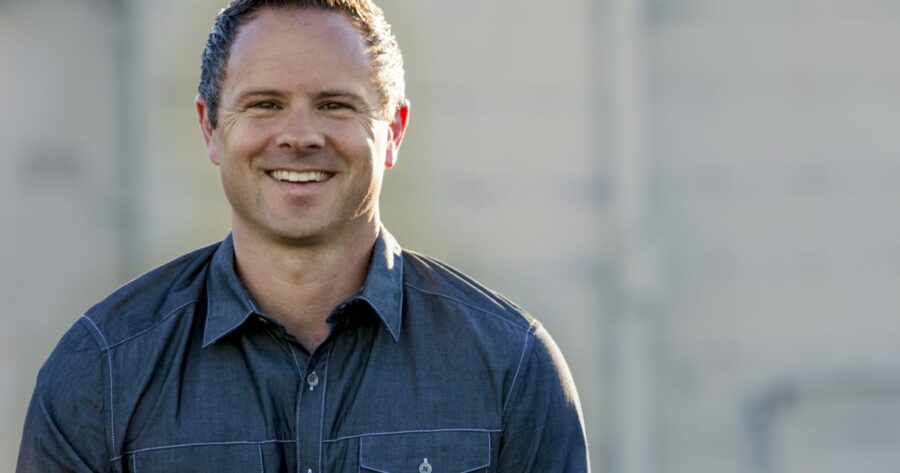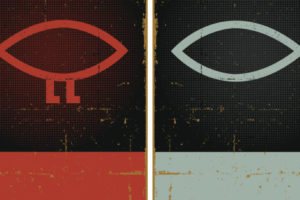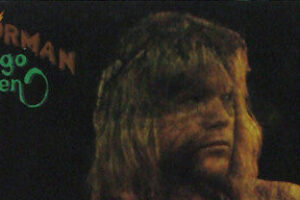My name is Brad Blakeley—I’m a graduate of Biola’s Master of Apologetics program, a teaching pastor at the Church at Lake Mead (C@LM), a high school teacher at Lake Mead Christian Academy, and an adjunct professor at Lincoln Christian University Las Vegas Extension campus—and I recently had the privilege of interviewing Sean McDowell, who is listed among the top 100 Christian apologists in the world. McDowell is a gifted communicator with a passion for reaching the younger generation with the Gospel message, previously serving as Head of the Bible Department at Capistrano Valley Christian Schools where he taught Philosophy, Theology, and Apologetics. He graduated summa cum laude from Talbot Theological Seminary with a double Master’s degree in Theology and Philosophy and is pursuing a Ph.D. in Apologetics and Worldview Studies from Southern Baptist Theological Seminary. He has recently accepted a position at BIOLA University in the M.A. in Apologetics program, which was the main topic of our interview.
Blakeley:
Alright, so I got eleven questions for you this morning,
This may be an obvious question, but I thought, rather than assume the answer I’d ask it. Why did you choose to get into apologetics professionally? Is it just in the “family DNA,” or did you have other reasons for this career path?
McDowell:
A lot of what motivated me to get into apologetics was actually my own questions. I just had a questioning period, which I think is pretty natural for people. I really started to get serious about, you know—Do I really believe the Bible’s true? Does God exist? Is Christianity really the way to go? And so I just started to read more intently for myself and answering those questions just got me interested in thinking, you know, other people have to have these questions and if I can help others make sense of these difficult questions, then that would be rewarding. So, primarily, it came from my own interest.
Second, I think I am just wired that way. I’ve certainly been influenced by my dad, seeing him spend a life of studying and thinking and caring about helping other people and I kind of caught that passion from him.
Blakeley:
Excellent. Could you give our audience a helpful definition of apologetics? How would you define it?
McDowell:
Let me give you context. Apologetics primarily comes from 1 Peter 3:15, where it says identify Christ as Lord in your heart, always be prepared to give an answer when people ask and do it with gentleness and respect. And the word for “answer” or defense is “apologia,” and it has a legal sense. So apologetics is the sub-branch under theology where we offer reasons for why we believe what we believe. That can be defensive reasons, such as why evil doesn’t discount God or that there’s not contradictions in the Bible or defending that Jesus is the only way, but also offering positive arguments for why we think the Bible’s true, God exists, God is good, etc.
Blakeley:
You just about answered my third question, so if this is redundant, I’m sorry.
What would you say are the main reasons or purposes of Christian apologetics?
McDowell:
The first one is to strengthen Christians. I found in my experience, especially with young people, when they start to realize that this isn’t just a belief system they can compartmentalize in their mind, but this is really truth. This is real and there are good reasons to believe it. It gives Christians confidence.
Second, is just to help nonbelievers who have genuine questions to clear them away so they can see Jesus for who he is and be able to follow him and understand the nature of Christ.
So first for Christians, second for non-Christians. But, third, I think it’s also to create a cultural milieu where the gospel can even be heard. So, apologetics has done significant work in, say, America as opposed to such places like Europe, which is so much more secular. Christianity can’t even get a hearing there in a way that it can in America. Or, at least more so.
Blakeley:
Right, that makes sense.
In your view, what are the challenges, both inside and outside the Church today, that trained apologists could be and should be addressing?
McDowell:
I think the biggest questions are one, our origins—that’s a huge question about the whole intelligent design issue, the historical adam, because that shapes everything else, that filters down into every other ethical question we can imagine. So origins is huge.
I think the question of Jesus being unique gets asked a lot by young people. You know—What about my Buddhist friend? What about my, you know, my agnostic friend? Are you saying that they can’t go to heaven as well? I think that’s a big one.
I think the third one is the issue of homosexuality.
Blakeley:
Well, I understand you’re finishing up your PhD.—or you may be finished, I’m not sure exactly where you are. Could you tell us a little about your dissertation? I’m excited to hear the title.
McDowell:
Yeah, I’ve still got a little ways to go, but I’m making some progress. It’s on the question of how we know the apostles died as martyrs for their faith. So one of the arguments we make is, you know, the disciples saw the risen Jesus since they would not have suffered and died for something they knew was false. And I think there’s something to be said for their sincerity, because they’re willing to suffer and die, and yet when I started to actually ask the question, “How do we know this?” I noticed that nobody had shored this up and examined all the evidence. How do we know Peter really died by crucifixion? Was he crucified upside down? Was it in Rome? How do we know Paul died? Did Thomas really make it to India and get killed with spears, as one tradition says? It just started to intrigue me and fascinate me. Since I started this project, I’ve heard teachers, pastors, laypeople and apologists say so many things that I actually think, historically, cannot be backed up and verified in the way they say it.
So it’s just amazing how, sometimes, it’s not just in Christian circles, we hear stories and we hear things and we just accept them. We don’t go deeper and really probe into it. Well, I’m probing more deeply and I’m finding that we can make the argument from their willingness to suffer and die and we know with a high degree of confidence some did. But some of the other apostles, the information is really, really uncertain. I’m not sure we can establish that they died in the way many traditions state they did.
Blakeley:
Yeah, I think you’re definitely following that Christian tradition of academic honesty. We’re not trying to go beyond the evidence to make our point. And that, I think, is very admirable on your part.
My next question to follow up that is: What was the most challenging part of your project and how far away are you from finishing?
McDowell:
A challenging part is obviously, one, making time to do it ‘cause I’m a father and I teach and I speak so, you know, being my age, in my thirties, that’s just a challenging task.
Second, it’s just finding the resources because no one’s really put this together so I have spent probably hundreds of hours just tracing footnotes down and seeing who people cite and emailing scholars and just trying to compile all the best resources out there because different people have written on St. Thomas or Andrew, but no one’s brought it all together and assessed them comprehensively to see, you know, what apologetic merit their death has. And, I think this is the nature in any dissertation—you’ve just gotta spend a lot of time pulling the right sources together. So, that’s probably been the second biggest challenge.
As far as being done, I’m hoping next May and I can graduate next spring. That’s my goal. All I can say is that’s my strong goal. I’ll work hard as I can.
Blakeley:
Excellent.
Alright, if you had a forty-second sound bite or so on a national stage, what would you want to communicate to our country about Christianity, from your apologetic perspective? If you had forty seconds to say something, what would you say?
McDowell:
I would say that it’s not enough to have a generation that believes truth. We must bring up a generation that knows why they believe what is true, has lived it out through their own life through relationships, and is prepared to take some of the persecution and animosity that our anti-Christian culture will be bringing against us already now and increasingly in the future.
Blakeley:
Wonderful.
You recently accepted a position in in BIOLA’s Christian Apologetics program. Tell us about your vision and passion for the program and why people should consider joining the program.
McDowell:
Timothy Keller is, I think, one of the most influential and insightful pastors in America. He’s from New York and he wrote an article on five big things the church needs to do in the 21st century. In his top five was apologetics. I completely agree. He said, number one, in our generation, kids through the Internet and through their neighbors are experiencing worldviews and ideas that the generation before never had to grapple with.
Second, other countries are saying missionaries now from the United States, with different religions in particular, try to, you know, reach out and persuade people to their religion instead of Christianity. And they said when Christians get apologetic training, like I said earlier, they begin to become confident in their belief.
So my passion as a whole is to just take apologetic training and filter it down to laypeople, so to speak, and to help them see that Christianity makes sense of the world and it answers the big questions. And if I can equip the church, then I think in the small way God has given me, then I think the church will be more prepared for the coming criticism—or the amounting criticism—that is rising in our increasingly secular culture. So, I’m honored to be at BIOLA. I think it’s the best apologetics department and program in the world. I think they’re doing fantastic stuff and I just want to help them in whatever way I can. If I can help make it better, then I’d love to help make it better. If I can help make it bigger, then I’d love to help make it bigger. My vision is to partner with BIOLA and do the best apologetics around for the sake of just building up the church and, in particular, the next generation of young people.
Blakeley:
Excellent.
What classes will you be teaching in that program?
McDowell:
They have what’s called standard classes for the program. It’s about thirty units. So there’s a class on Scripture, reliability and authority, inspiration; there’s classes on the resurrection, the problem of evil; there’s classes on ethics. So, since I’m the new guy, I will basically be teaching whatever they tell me to teach. I think some of that is getting figured out right now. So, I would guess I’d probably do classes on the resurrection and Scripture. That’d probably be my best guess.
Blakeley:
Excellent.
Are there any classes you’d like to see offered in the program that are not presently offered?
McDowell:
Well, what they do is they do so many weekend classes that people can come take for four days. So, if it’s not a part of the core curriculum, you’ll see it offered on a weekend that somebody can take as a substitute. So, they don’t have intelligent design as a core class but they do for weekend classes and intensive classes where experts—world experts—come in and teach fully on the intelligent design. So, eventually, I don’t know if they’d let me, I’d love to do something to the effect of apologetics and the next generation. Something on like how do we teach apologetics, how do we make it relevant, how do we engage the church? A real practical kind of apologetic. Eventually, I’d like to develop something like that.
Blakeley:
Yeah, that would be helpful, I think.
Okay, last question. You’re a sought out speaker. Will you still be able to travel? And do you want to come out to Las Vegas? That’s where I’m at, but I’m just teasing.
McDowell:
First off, yeah! I’ve been to Vegas a few times—for speaking, I promise. But, yeah, the great thing about being in a vital program is they want you to speak. Every single time I speak and someone just mentions I’m a professor at BIOLA in the apologetics program, that gets the word out there. So I think one of the reasons they wanted me here was because I speak and I can just help in my own little way to spread the word and recruit and build up the program.
Blakeley:
Excellent, excellent.
Well, it was a sure pleasure to ask these questions and thank you so much for your time. I am excited about the new addition to the BIOLA program. I do believe you will be a very, very great addition. And, I love your vision for that program and I couldn’t agree more. I’m a high school teacher and the program helped me a lot.
***
Thank you Sean for this opportunity to talk to you this morning. May God empower and bless you in this new endeavor!





3 Comments
Leave your reply.